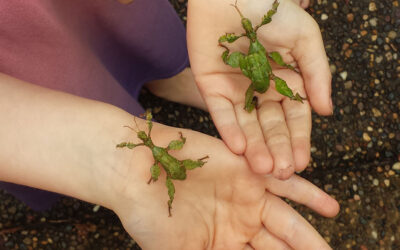With the 24/7 nature of life today, it’s a sad fact that most of us will experience burnout at some point. But it’s not just adults and university students experiencing this condition.
Teens today are just as stressed as the older generations, but they often lack the skills to deal with the repercussions.
High school, extra-curricular, social media, exams, relationships and family are all demands on their time and energy. It seems only a short time ago that we were picking out their clothes and telling them when to go to bed. Those few years aren’t nearly enough to give them the life experience to cope with the sudden increase in stress.
The 2021 Mission Australia Youth Survey found physical and mental health is critical to young people’s wellbeing. Getting the balance right can have a significant impact on their ability to achieve study, work and life goals.
Key findings from the survey include:
- 49 per cent of young people use physical activity as a way to manage and reduce stress
- 41.9 per cent of those aged 15 to 19 years are extremely or very concerned about their mental health
- 46.6 per cent of young people studying identified barriers to achieving their study or work goals
The top three barriers are mental health (51.5 per cent), academic ability (42.1 per cent) and COVID-19 (32.2 per cent).
For teens who are gender diverse, mental health (83.2 per cent), discrimination (29.4 per cent) and lack of family support (21.9 per cent) are the top three barriers to achieving their work or study goals. These results are significantly higher than in 2019, when the survey first included questions about mental health.
In partnership with Black Dog Institute, Mission Australia released a report in August 2021 focusing on psychological distress in young people. The report found that in 2020 more than one quarter of young people met the criteria for experiencing psychological distress – an increase of 8 per cent since 2012.
What is teen burnout?
Burnout is a form of exhaustion caused by constantly feeling swamped. It’s a result of excessive and prolonged emotional, physical, and mental stress. In most adult cases, burnout is related to a job. Yet, it can happen anytime when you are overwhelmed, emotionally drained, and unable to keep up with life’s incessant demands.
Though most teens go through times of stress, burnout can have devastating consequences. Chronic stress can result in depression, aggressive behaviour. It reduces your energy, making you feel hopeless, cynical, and resentful. Long-term burnout can even make you more susceptible to colds, flu and other ailments.
In teens, it can lead to risky behaviours such as drinking and smoking, to cope with their feelings of stress.
Signs of teen burnout
There are several indicators of teen burnout. Unfortunately, many of them are similar to the typical ‘teenage years’ indicators. If your child is showing any of these signs, it’s always worth digging a little deeper to make sure there isn’t something more going on than adolescent growth.
Anxiety
If they seem unable to relax or unwind, or more anxious and restless, particularly in moments that would usually be downtime, burnout could be an issue.
Depression
Have they lost interest in doing things they love? Or decreased attention when doing things? See if there is any particularly stressful happening in their lives.
Insomnia
Teens are well known for their love of sleep. But if it seems they are having a harder time than usual going to bed at night, see if there is an underlying concern. Limiting screen time before bed can help with a good night’s rest.
A change in eating habits
It could be over-eating or under-eating, but any change in eating habits could mean they are feeling burnt out. Consuming an increase in unhealthy foods can also be a warning sign.
Health issues
If they are suffering from stomach ache, headaches, dizziness or dry throat, stress could be the cause.
Emotional behaviour
If your child is experiencing intense moments of frustration, sadness, anger, or any emotions, don’t simply presume it is hormones. Instead, have a genuine conversation about what’s happening below the surface with them.
Risky behaviour
Experimenting with drugs or alcohol for the first time is a huge warning sign that there is something stressful happening. They could be using them as a way of escaping their stress.
What can we do to prevent teen burnout?
The most important thing parents and care givers can do is to be understanding of the problems teens face. Conversations can be delicate, as teens might be worried of immediately being hit with restrictions. Therefore, broach topics in a way that allows them to talk openly without fear of consequences. Keep them engaged in a conversation, without shutting them down or judging.
For example, if they are overtired, rather than immediately taking away their phone at night, discuss what could be worrying them.
If they are feeling particularly sensitive, ask them if there any friends at school are displaying signs of stress. Talking about the signs and concerns framed around a ‘friend’ takes away any fear of consequences.
If they are feeling overwhelmed with the balance of study and sports, be understanding and talk to them about how you might approach the situation. Could some activities be reduced? Could you do something more to support them?
Create a paper schedule together (it’s visual and off a screen). See where the time is going. Help them make their own choices about how to manage their time.
Let them rest! Give them time to rebalance and rebuild. If they learn to listen to their body them they will learn how to regulate their own system. They will be empowered to manage their own mental health and know when they need to put the brakes on and look after themselves.
You might also like…
Feed, play, listen, love: 4 Tips to help raise a happy teen
The growing pains of adolescence — navigating the teenage years
When teens don’t fit in


